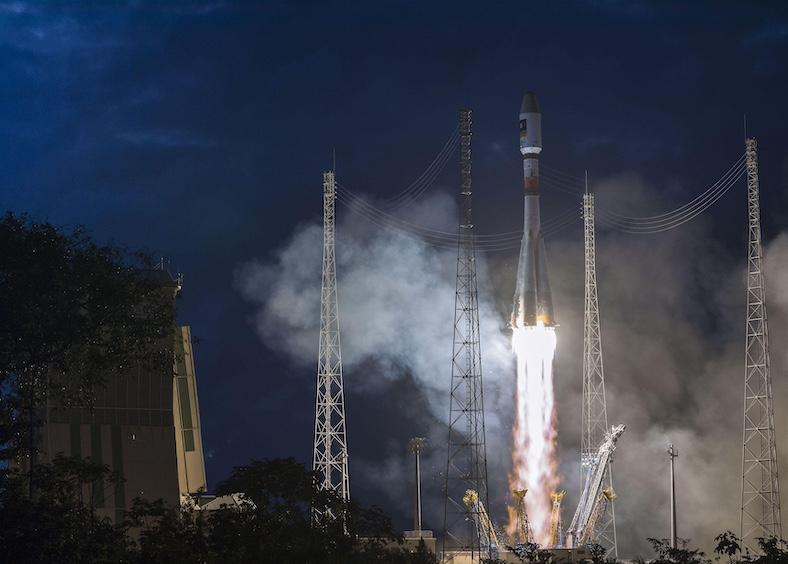
European Soyuz ST-B flight VS11 lifts off from Kourou, French Guiana.
The global space economy is booming and more rockets are arriving on the scene, but the governmental space market in one respect is becoming smaller: geographically.
Western satellites once flew on Russian-made rockets, such as Europe’s use of the Soyuz to deploy its Galileo navigation spacecraft constellation. Europe launched its Hera mission from U.S. soil with SpaceX this year and Asian governments at times have availed themselves of European rockets, such as the South Korean Compsat-2B launch four years ago using the European Ariane 5.
Those days of governments looking abroad for launch services are coming to an end, though, reflecting broader trends in the global economy where protectionist forces are gaining steam and liberal markets are under threat. Governments worried about falling behind in the space race are pouring money into homegrown rockets and, in turn, preferencing their local systems to try to make them financially viable.
Russia’s war on Ukraine ended Europe’s use of Soyuz. South Korea is investing in its own launchers. China, which at one point was willing to use the European Ariane 5, has shifted to its own rockets after years of heavy investment in the arena. India is doing the same.
The U.S. government always shopped locally, so much so that New Zealand’s Rocket Lab moved to the U.S. to tap, with success, into the huge institutional market there.
Now Europe is desperately trying to instill more discipline across the region to do the same. The European Union wants to create a stronger local market and push member states to opt only for launch providers from Europe to bolster that industry. For European officials, the incoming U.S. Trump administration, with its America-first focus, only adds urgency to these moves, European government and industry officials said at the recent Space Tech Expo event in Bremen, Germany.
Europe’s flagship Ariane 6 heavy-lift rocket only plans to scale up to around 10 launches per year–four to meet likely annual European institutional needs and the rest for commercial customers it can secure. Other launch providers also want European states to pool demand more to counteract market access limitations elsewhere, at least to government customers that can have the deepest pockets.
That’s not to say cross-border launch arrangements don’t happen. Commercial operators that are buying launch services are still looking beyond national considerations, in part to ensure adequate supply of options and to secure attractive pricing. Eutelsat has committed to using the Japanese H3 launcher for future missions and Amazon is an Ariane 6 customer to deploy its Project Kuiper constellation, for example.
Still, one European space executive notes, “there is not an export market as there once was.”





